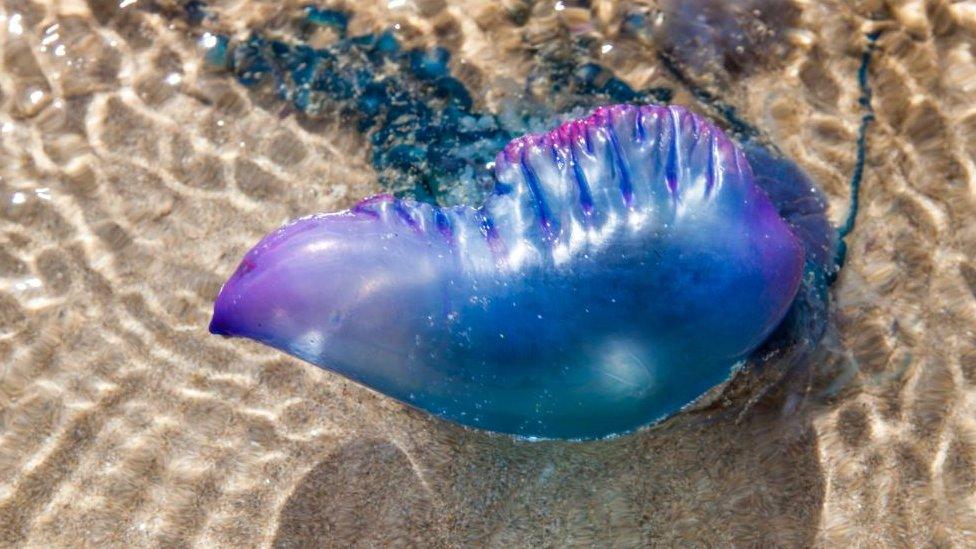Deadly Portuguese man-of-war swept up on south coast beaches
- Published
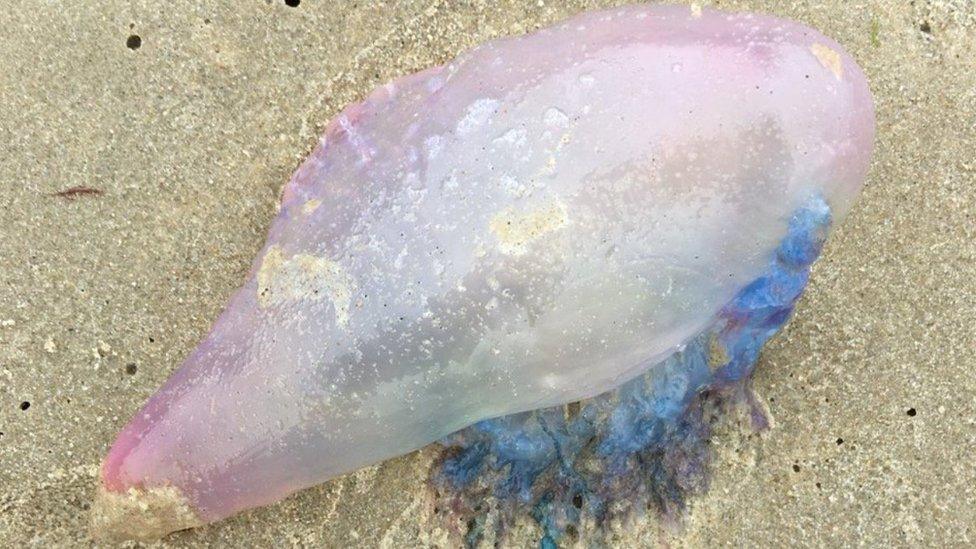
Portuguese man-of-war are washing up along the coast
A warning has been issued after more dangerous jellyfish-like creatures washed up on UK beaches.
The UK Coastguard has told people not to handle the Portuguese man-of-war, following an increase in the number appearing along the south coast.
It follows a spike in sightings across the Welsh coastline last week.
They were reported at Hove, Dawlish, Lyme, Charmouth, Bournemouth, Swanage, Seaton, and Portsmouth over the weekend.
Winds picked up over the weekend as Hurricane Ophelia heads towards the British Isles.
Speaking to the BBC previously, Dr Peter Richardson of the Marine Conservation Society said that although the man-of-war is a solitary being, they "they travel in the water whichever way the wind blows".
Its venom, which is used to paralyse its prey, can cause pain to humans and animals, and in very extreme cases death.
Aimee Rampton, duty controller for the UK Coastguard said: "We are aware of these sightings after receiving multiple reports from members of the public.
"Until an accurate identification is made, members of the public are advised to keep away from these jellyfish and report any sighting to the their local council."
The Coastguard said it had also advised the local councils of the recent sightings.
- Published17 October 2017

- Published13 October 2017
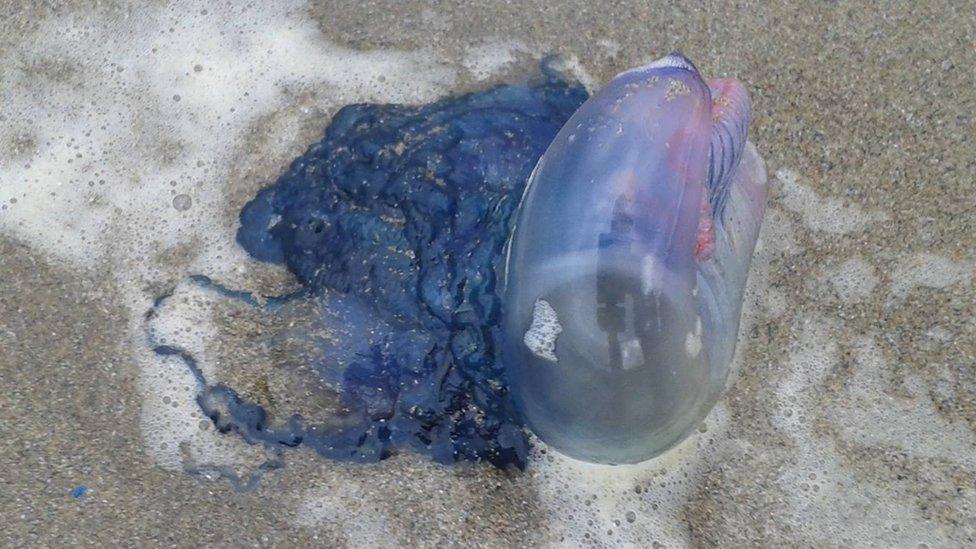
- Published2 October 2017
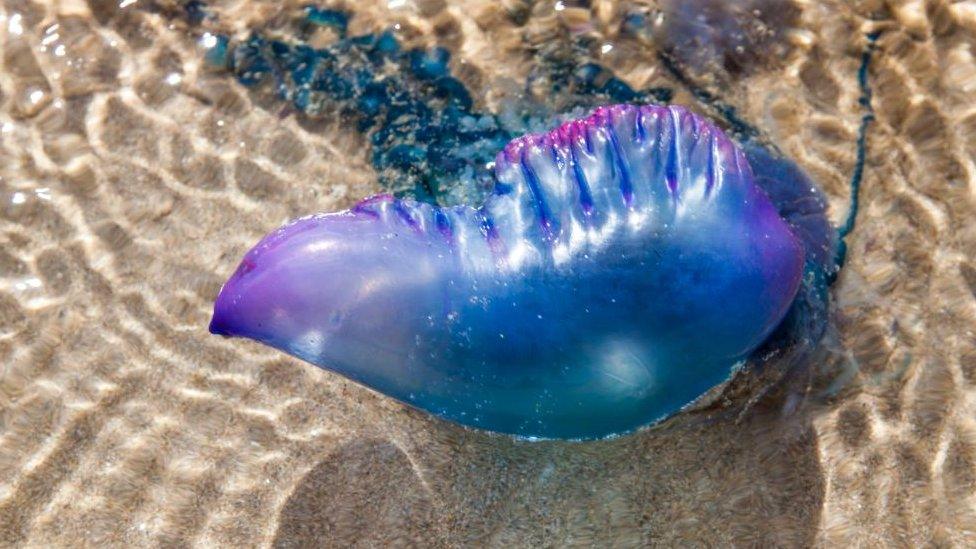
- Published13 September 2017
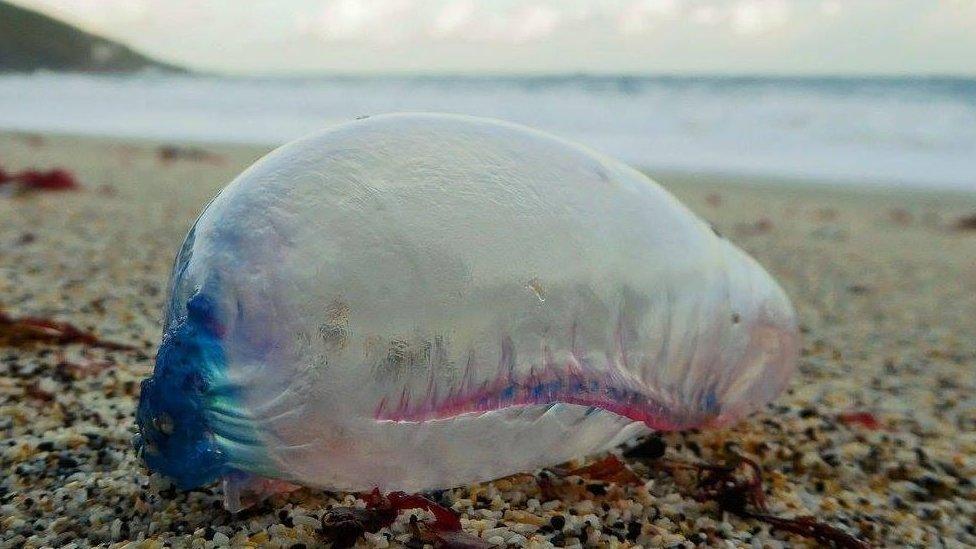
- Published13 September 2017
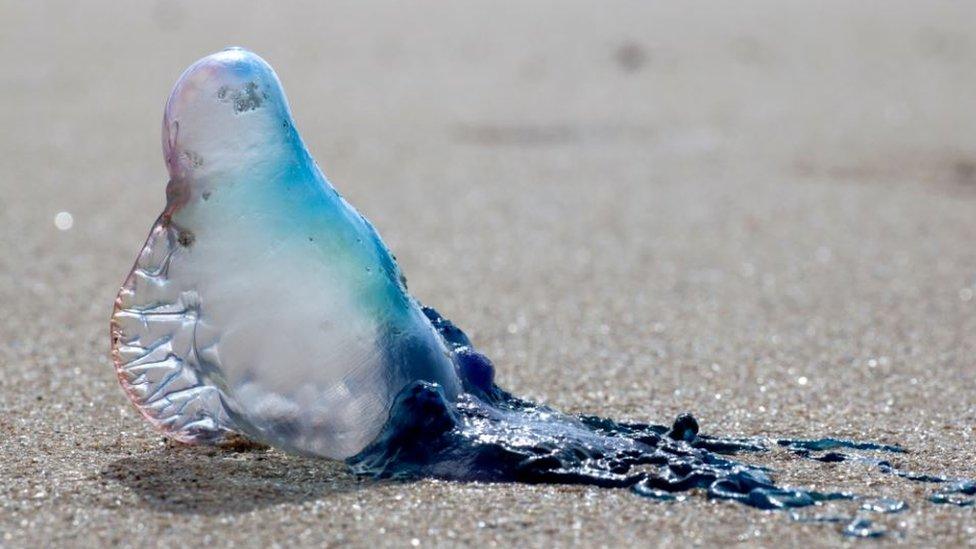
- Published12 September 2017
